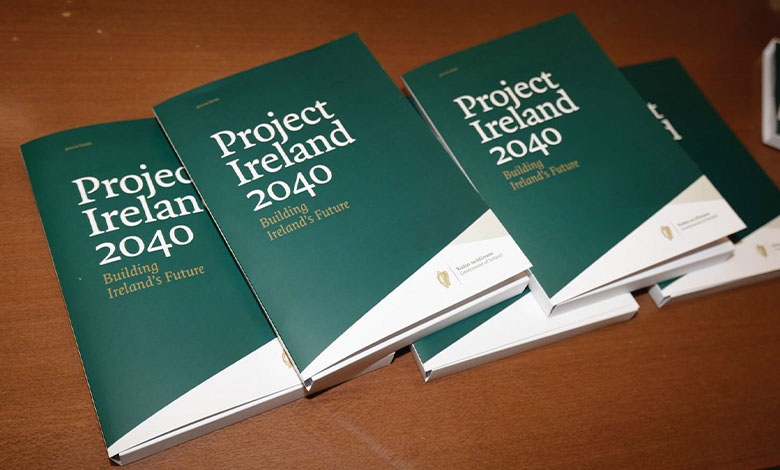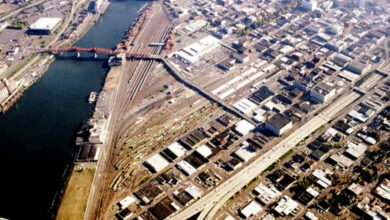Project Ireland 2040: Inflation curbs 2022 construction efforts

The 2022 update on the implementation of the Project 2040 infrastructure programme paints a largely positive picture for the strategy’s progression, but with economic challenges having manifested in 2022, significant work remains to be done.
The Project Ireland 2040 Annual Reports for 2022 outlines that the volume of output in building and construction in 2022 was 9.7 per cent lower that the production level found in 2019, pre-pandemic.
In terms of construction (excluding civil engineering), the volume of output in 2022 was 9.9 per cent lower relative to 2019. With regards to the residential sector, the volume of residential output decreased by 27.5 per cent between 2019 and 2022.
The report further outlines how this relative decrease in construction output was caused by the spike in inflation which took place after the Russian invasion of Ukraine in February 2022.
However, leading economists, including The New York Times’ European economic correspondent Peter S Goodman, have argued that global rates of inflation are primarily down to supply chain challenges which took place during and in the immediate aftermath of the Covid-19 pandemic, with many global haulage firms having become defunct in that time and global logistics entities having become dominant in the sector, resulting in less reliable supply chains with less options for transport for importers for good across sectors.
Inflation was then accelerated by the Russian offensive in Ukraine which resulted in disruption to fuel supplies, further increasing the cost of importing building materials.
The report outlines the impact of these spikes in inflation, stating that, in the 12 months to December 2022, there was a 16.2 per cent increase in the wholesale price index (WPI) of building and construction materials.
“2022 saw significant increases in the cost of energy and electricity, with electricity and energy products as measured by the WPI increasing by 10.4 and 10.7 per cent respectively in the 12 months to December 2022,” the report explains.
Inflation and supply chains
With inflation cited in the progress report as the top challenge to overcome if infrastructure projects are to be delivered as planned, the delivery of new procurement practices is said to be a top priority if supply chains are to be opened up.
In January 2022, the Office of Government Procurement published amendments to the public works contracts to reflect inflation pressures that arose on construction materials throughout 2021.
The report states: “These changes reduced the fixed price period in the contracts, introduced a provision to permit contractors recover material price inflation in excess of 15 per cent within the fixed price period and allowed for the tender price to be adjusted to reflect for an increase above the defined background inflation level in the Central Statistics Office ‘all materials’ category of the Wholesale Price Index between the tender submission date and the award of contract.” These amendments applied to those contracts whose tenders were received after 18 January 2022.
In May 2022, the Department of Public Expenditure, NDP Delivery and Reform introduced the Inflation/Supply Chain Delay Cooperation Framework for parties engaged under a public works contract with the objective of safeguarding public projects that were already under construction and to mitigate the risks of significant losses being sustained by contractors.
The report outlines that government departments have reported that in the majority of cases parties are engaging and that agreements have been entered into. In spite of the downtick in residential output observed in 2022, the report claims that this level of engagement has facilitated “the progression of works” and has “avoided substantial delays” to completion by bringing a “greater level of certainty to contractors as to the extent of their exposure to inflation in material and energy costs”.
Analysis
Although the Project 2040 report for 2022 paints a pessimistic picture for the state of construction in Ireland, the Government will take solace in that figures released in January 2024 show that building commencement in 2023 rose to almost 33,000 homes.
However, with the Parliamentary Budget Office having said that inflation is not likely to be back to government target levels until 2025, it is unclear whether there will be enough of a mitigating factor in the subsequent increase in construction which took place in 2023 to curb the continuing rising prices and resultant housing crisis which continues to blight Irish society.





